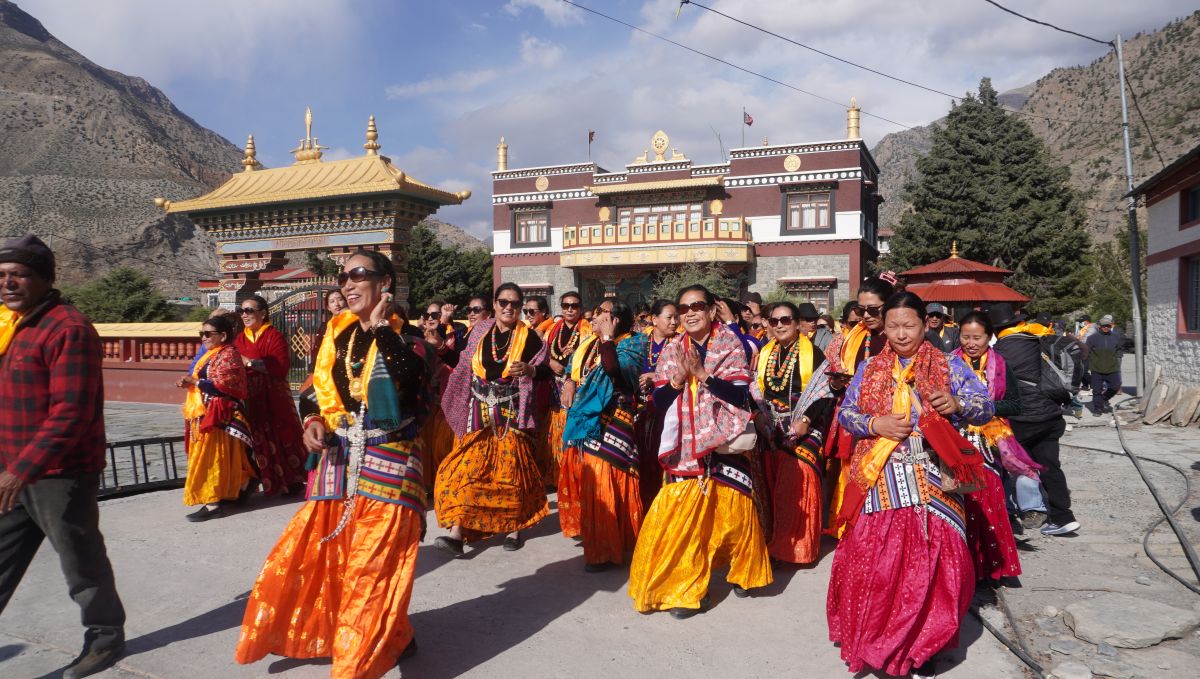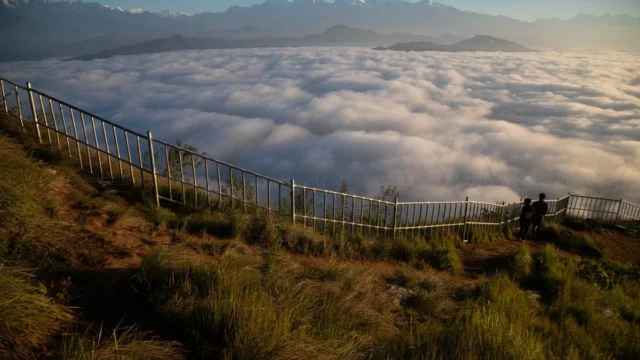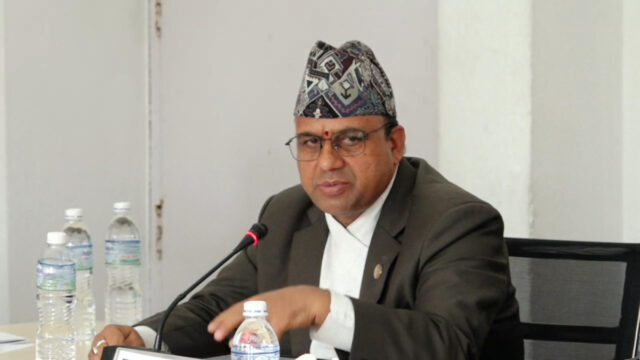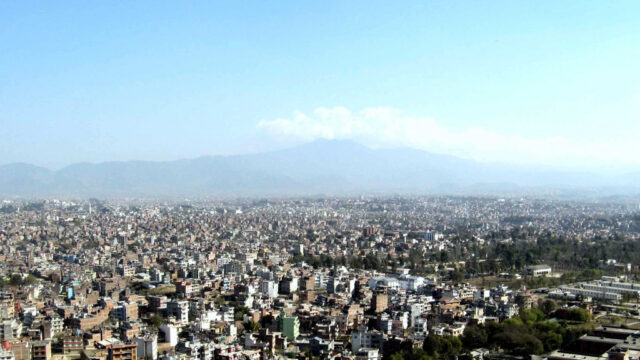The Tangwe Gurung people, who live in Tangwe, Baragung Muktikshetra-3 of Mustang district, have been practicing thachyang for centuries. In contrast to a festival, Thachyang is a symbolic rite that signifies a person’s voluntarily leaving of communal duties when they turn 57.
The literal translation of Thachyang is “freedom from social bonds.” It has its roots in Himalayan customs and signifies a transition into a time of individual liberty and separation from the official responsibilities of village life.
The traditional mukhiya (headman) system, which is still used by the Tangwe Gurung community, is used to organize all social and administrative tasks, such as village meetings, farming activities, and public announcements made by the katuwal (messenger). Villagers are required to carry out these responsibilities in a rotating fashion or risk punishment for noncompliance.
According to community leader Sangita Tangwe Gurung, the Thachyang ceremony provides a dignified reprieve from these responsibilities. In our culture, one must be 57 years old to perform Thachyang. It signifies a shift in society away from collective responsibilities,” she said. She did clarify, though, that taking part in Thachyang is completely voluntary and does not preclude people from continuing their voluntary participation in community affairs.
Sangita claims that the custom, which is frequently observed with close family, is not only symbolic but also intensely personal. Many people use the Thachyang celebration as a happy occasion in later life because they were unable to have lavish weddings when they were younger.
Tangwe is not the only place where Thachyang is practiced. Every one of the 19 villages in the Baragung Muktikshetra Rural Municipality observes it, and after turning fifty-seven, people voluntarily celebrate the milestone.
Ancestral deity worship is part of the two-day Thachyang. Singing traditional songs is a way to ask the mountain gods for blessings for the spirits thought to reside in the sea. A symbolic separation from material attachments, such as those to people, animals, and plants, is also reflected in the ritual.
As a sign of respect and blessing, the community presents the person in a basket with chyang, a local alcoholic beverage, and khada, ceremonial scarves, at the start of the ceremony. Family members and friends join in by praying and wishing for longevity, which is customarily 99 years for men and 89 for women. The community has a cultural belief that women should marry men at least ten years younger than them.
The person is led around the village in a horse-drawn procession on the last day. One of the most unique aspects of the Thachyang tradition is this symbolic ride, which serves as a public announcement of their release from communal duties.
A Gurung-language procession honoring the community’s ancestral deity and celebrating the individual’s freedom from social obligations was recently held in Jomsom, Mustang.
Thachyang serves as a unifying force, bringing together community members from all over Nepal and overseas, according to resident Dev Singh Tangwe. “The event is celebrated with dancing, singing, and festive joy, and both men and women dress in traditional attire and ornaments,” he said.
The Tangwe Gurung people’s spiritual and collective identity is preserved through Thachyang, which is still celebrated as a cultural event and a symbolic farewell to social responsibility.






